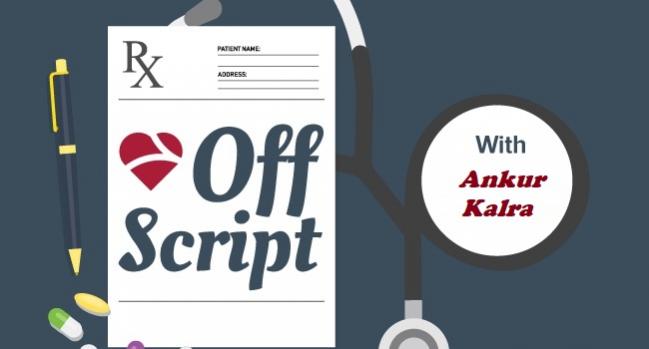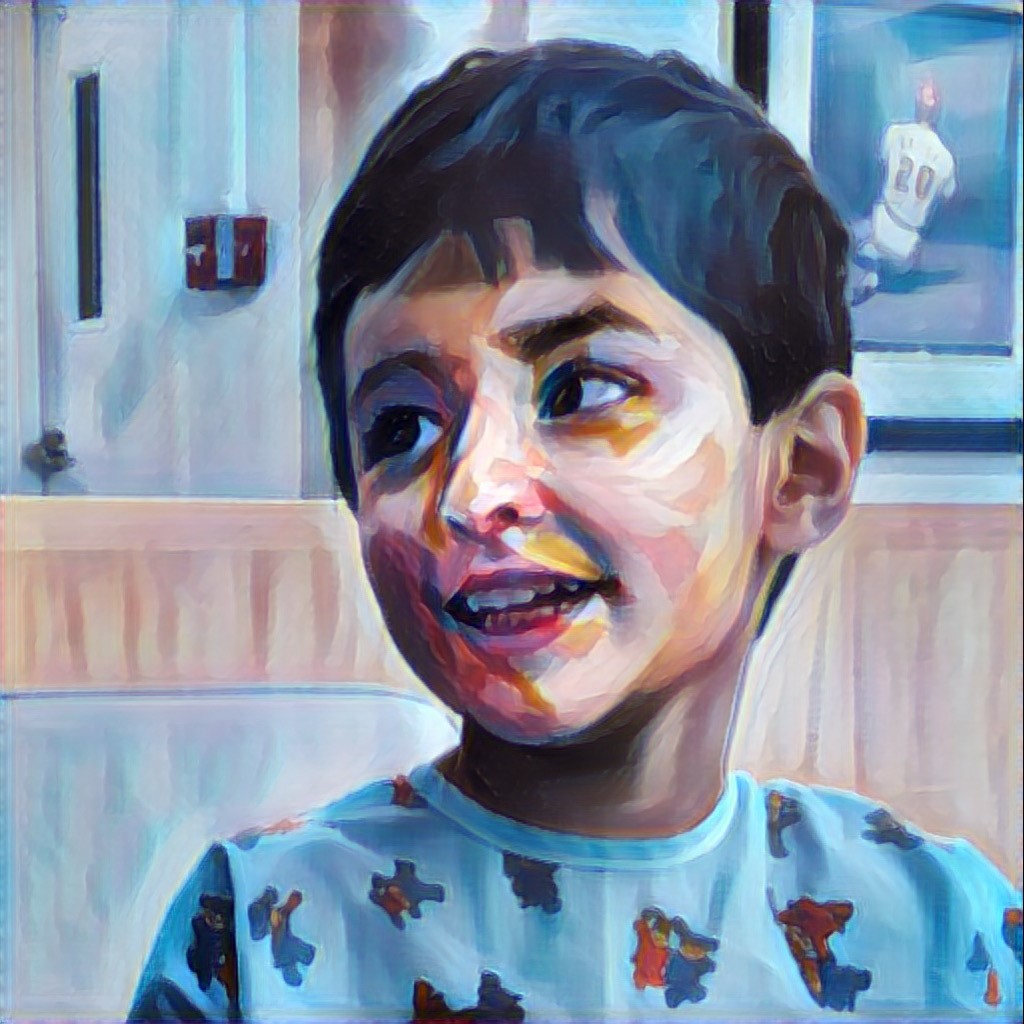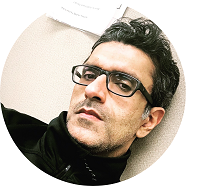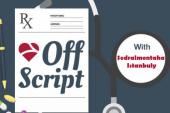From the Dress Rehearsal to Closing Night: Lessons in Humility and Hope
In the months leading up to his son’s heart surgery, a cardiologist had to reconcile a doctor brain with father fears.

An astute pediatrician evaluating my 18-month-old son had heard a new murmur on physical exam and had dutifully ordered an echocardiogram. I vividly remember how positive I felt taking him for his first echocardiography appointment: a benign “flow murmur” was my top differential diagnosis. That all changed when the first color-flow Doppler window of his echocardiogram appeared on the monitor. We were told that he would require elective valve repair between 3 and 5 years of age. His specific diagnosis? A partial atrioventricular canal septal defect, although his primum atrial septal defect was barely a few millimeters, vying for physiological significance.
I’m the cardiologist in our two-physician household, so my wife—an ophthalmologist—had plenty of questions for me. Why hadn’t I listened to him (his heart) before? How did this happen? He had grown beautifully, met all his milestones, and exhibited no warning symptoms or signs of a heart valve condition whatsoever—did I have a family history of congenital heart defect/disease, et cetera.
“We still have time,” I said as I tried to reconcile my rational-doctor's mind with my emotional-father self; however, before we knew it, our son was a bright, energetic, all-over-the-place, wanting-to-conquer-it-all three-and-a-half-year-old. We had been diligently following up with his cardiologist, and objectively quantifying the degree of mitral regurgitation and left atrial and ventricular sizes, whilst keeping an eye out for symptoms. Thankfully, he had remained asymptomatic on twice-daily enalapril, which, on a tangential note, exponentially motivated me to research the association of ACE inhibitors/ARB prescription with test positivity during the COVID-19 pandemic. Right before Thanksgiving 2020, his surveillance echocardiogram showed warning signs of significant progression warranting elective repair in the next 3 to 6 months.
What we had been successful in keeping in our peripheral vision for the past few years was now front and center. All the while, I’d been digging through the literature to understand the natural progression of cleft mitral leaflet and regurgitation, only to find a few, small series of published cases and surgical experience/short-term outcomes data from high-volume pediatric cardiac centers in the world. This came as a huge surprise to me. In the adult cardiology world, we are spoiled by the abundance of randomized clinical trial data in several hundred thousand patients throughout the globe and across the spectrum of disease states to guide clinical decision-making and practice. There’s literally a randomized clinical trial for every clinical decision we make in the cardiac catheterization laboratory, at our clinics, or at the bedside for our patients.
Being “in the field,” I set out to get some second opinions and learned that this is a colossal advantage I wish every patient could have. In the end I was convinced that surgical intervention was the right decision. As a cardiologist who weighs in on elective surgery for patients with severe, asymptomatic mitral regurgitation, I had “crossed that bridge” with them on several occasions, backing my decision-making and convincing them and their families on timely intervention based on data, guidelines, and algorithms. This time, though, it was different. I was the father of the patient and being a cardiologist, I had to bear the weight of this decision for both my wife and I: by consenting a thriving, beautiful boy through elective open heart repair, I was putting all of our hearts on the line.
My perception remains that I lived through this situation more intensely than my wife, not because she wasn’t going through the same emotional turmoil as a parent, but because being an ophthalmologist, not a cardiologist, she had the bliss of ignorance regarding what all could go wrong. In the 5-month buildup to his surgery, which I think of as the dress rehearsal period, I read copious amounts of literature on natural progression and postsurgical recovery in kids, including any psychological impact it could have. I learned extensively about his cardiac surgeon, interacted with him and his team including the pediatric cardiac anesthetist on several occasions, and learned the kind of nuances that only I could appreciate as a cardiologist father: total bypass time, aortic cross-clamp time, extubation in the operating room, need for vasopressor support whilst in the intensive care unit, sedation protocol for kids in the intensive care unit, pain control, and duration of urinary catheter, chest tube, epicardial pacer wires, central venous catheter, and arterial line. This allowed me help prepare my wife for what to expect with regard to his length-of-stay in the intensive care unit, total duration of hospital stay, and his postoperative care and recovery at home.
In the end, my son had a successful elective, open-heart repair of his anterior mitral leaflet cleft. The amount of courage, grace, poise, and resilience he exhibited during his postoperative and recovery phases of his 4-day hospital stay were exemplary not only to my wife and I, but I think also to his care team, who took excellent, world-class care of him. Within 6 weeks of his open-heart surgery, he was back to being our bright, energetic, all-over-the-place, wanting-to-conquer-it-all, now 4-year-old boy.
And me? I learned that being on the other side is fraught with a potpourri of complex emotions—anxiety and fear, most of all. I believe, however, that each time we encounter circumstances we have no control over, we are left with no choice but to fall back on foundational principles of how to lead a life of compassion, humility, and meaning. For me, this reinforced my faith in the universe’s process—that life is happening for us (not to us)—and in prayer and community, my family and friends. It also taught me that as important as it may be to deliver world-class, evidence-based, guideline-directed care to our patients, it is equally important to care for their emotional well-being: allay fears, repeatedly reinforce that all will be well, and help them to let go of what is not in their control. Compassion is as important a practice as the science of medicine. Perhaps being a vulnerable father will make me a better physician.

PS: I want to acknowledge Cleveland Clinic Children’s for their exemplary care they provided to our family—in particular cardiac surgeon Hani Najm, MD, pediatric cardiologist Shahnawaz Amdani, MD, and pediatric cardiac anesthetist Julie Niezgoda, MD. I also want to thank my son’s former pediatrician, Elizabeth Hellerstein, MD (University Hospitals, Cleveland, OH), for picking up his new murmur in a timely fashion.
Off Script is a first-person blog written by leading voices in the field of cardiology. It does not reflect the editorial position of TCTMD.
Ankur Kalra, MD, is an interventional cardiologist at Franciscan Health in Indiana and co-chief executive officer of Kalra Hospitals in…
Read Full Bio




Comments